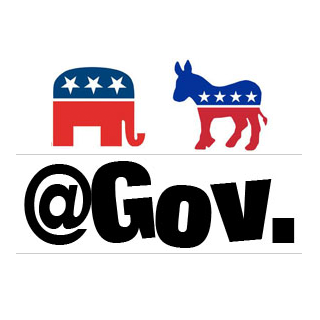
Juan Pablo Rivera Garza
Blogs Editor
Many had claimed that there was little to no chance that President Obama would win re-election, yet here we are. Overcoming as weak an economy as the one now to still achieve re-election was a tribute to the success President Barack Obama’s campaign is arguably one of the finest political operations ever run in this country’s history, while Governor Romney’s was much weaker than it should have been. Here’s what happened:
httpv://www.youtube.com/watch?v=sWiSFwZJXwE&feature=player_embedded
Romney Allowed Himself to Be Defined
The President and his campaign knew early on that Governor Romney was going to be the Republican nominee for President, and they made sure to define him as soon as possible. Though Governor Romney and his allies held and raised more money than the President’s campaign, he did not spend it as effectively and as intelligently as President Obama did. This is obvious through the multiple effective advertisements that the Obama campaign released, each one carefully painting Mitt Romney as an out-of-touch plutocrat with weak solutions for the U.S. economy.

The Republicans Need to Nominate a Charismatic Candidate
Mitt Romney is a good man, but he was not prepared to go up against someone as charismatic as Barack Obama. As I mentioned multiple times in my previous blog posts, politics is an extremely emotional and visceral experience, and at the end of the day, most undecided’s will vote for the candidate they feel most inspired by. Governor Romney was not the right candidate for this election, and unfortunately his wooden campaigning, awkward persona, and wealthy stereotype ended up being his downfall.

Minorities Cannot Be Ignored Anymore
America’s population and its electorate are changing. For the first time ever, 28% of the electorate was non-white. That’s a breath-taking percentage considering the President won every minority group by a vast margin. Last election the Republican candidate (Senator John McCain) won 31% of the Hispanic vote, before that George W. Bush won 44% of Hispanics. This time around, Governor Romney only received 27% of the Hispanic electorate. It’s not a winning strategy, and with minorities reproducing at a higher rate than Caucasians, Republicans are in trouble. They need to appeal to minorities and fast, and that means toning down anti-immigration rhetoric that is driving many Hispanics from the party.

Statisticians Are Vital
If you haven’t heard the name Nate Silver yet, you will. Nate Silver’s electoral calculus for the New York Time’s 538 blog ended up being the most accurate prediction of the election, getting all 5o states correct and the popular vote within a few tenths of a point. Throughout the campaign, Nate Silver stood as one of the few voices who recognized that President Obama fundamentally led Governor Romney. Many political pundits scoffed at him and wrote him off, but his success has vindicated his political calculus model, and soon enough it might end up overtaking polls (most of which fell short this election season).

This was a brutal election, no question about it, but life must continue. Whether you like it or not, Barack Obama will be President for four more years and he will never face an electoral contest again. What’s going to be the effect of this election? Possibly nothing. But, this close election could serve as a reminder to Republicans and Democrats that although elections may be fun (trust me, I’ve had a blast) the most important part of politics is the governance. We here at the @GOV wish our lawmakers godspeed in solving our nation’s problems, and you can be sure to hear from us every step of the way.




